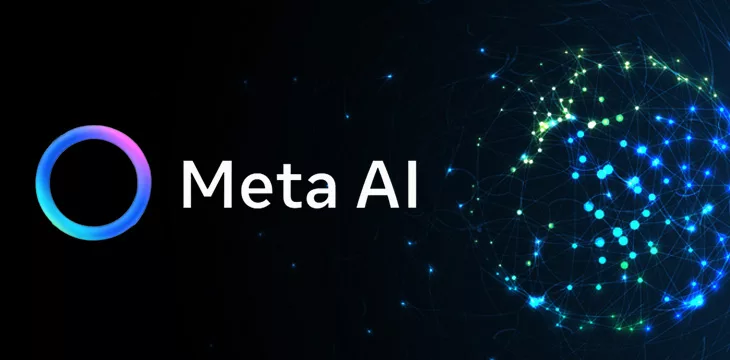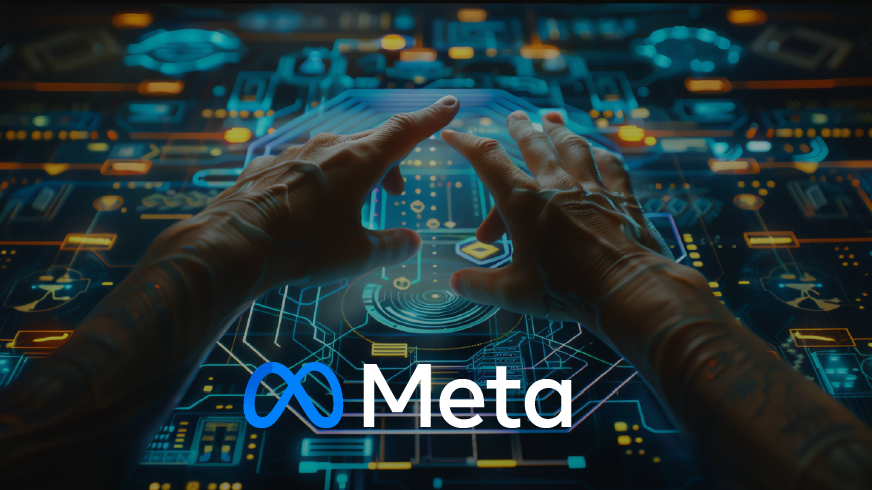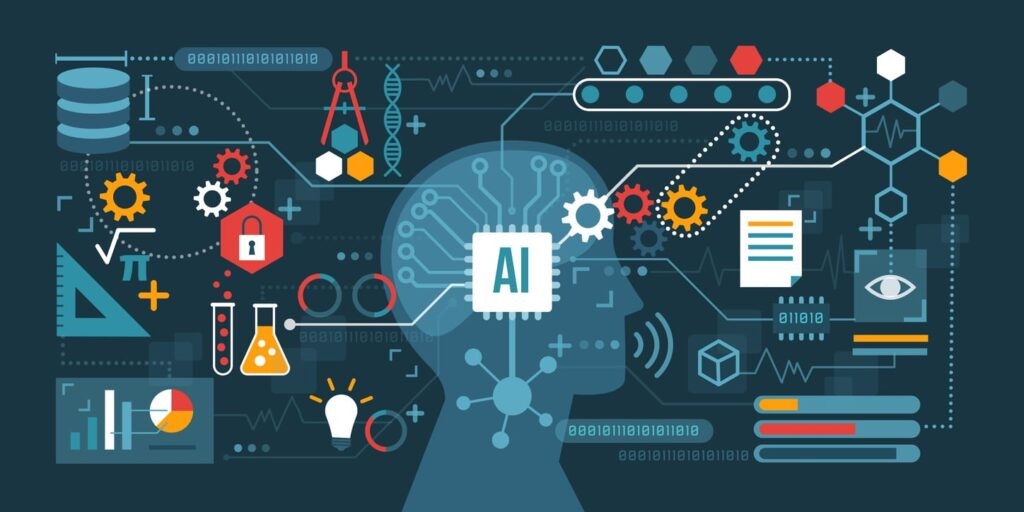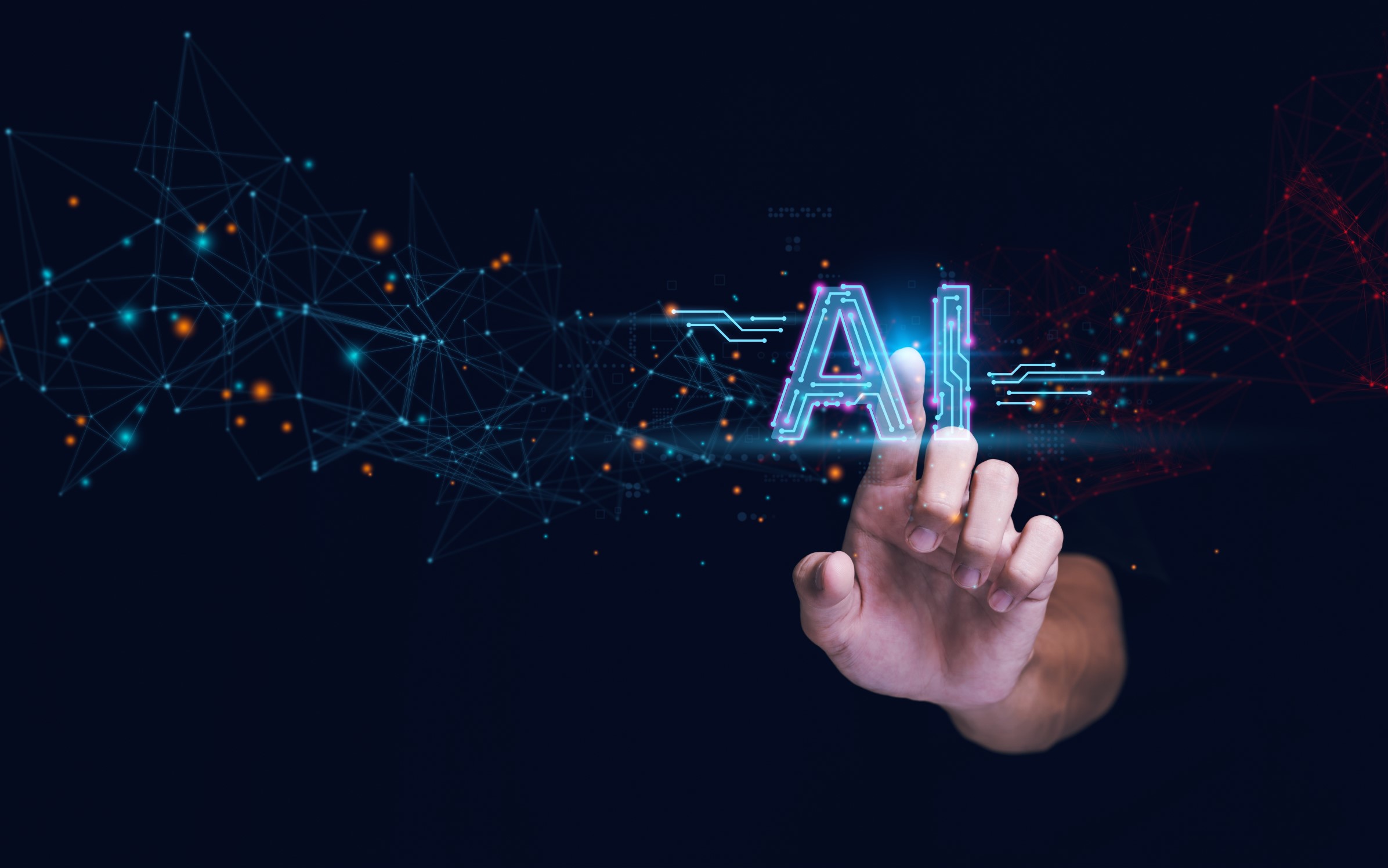
Subscribe to our free Newsletter
💌 Stay ahead with AI and receive:
✅ Access our Free Community and join 400K+ professionals learning AI
✅ 35% Discount for ChatNode
Welcome to The AI Report!
.png)

Meta AI Courses - How to Learn Cutting-Edge AI Skills
How to unlock your AI potential with a Meta AI course! Master essential skills in months, no experience needed.


Introduction to Meta's AI Courses

The artificial intelligence revolution is reshaping how we work, create, and innovate. As Meta AI reached nearly 1 billion monthly active users across its platforms by the end of Q1 2025, the demand for professionals who understand and can leverage these powerful tools has never been higher. A comprehensive meta ai course offers the perfect gateway into this rapidly expanding field, providing both foundational knowledge and practical skills that today's workforce desperately needs.
What is Meta AI?
Meta AI represents far more than just another tech company's foray into artificial intelligence. It's a comprehensive suite of advanced AI technologies designed to enhance user experiences, automate complex tasks, and foster creativity across diverse digital environments. The platform emphasizes personal interaction and adaptability, offering users innovative ways to engage with AI for both professional and creative pursuits.
What sets Meta AI apart is its focus on multimodal capabilities and efficient architectures that deliver high-performance solutions at scale. The technology seamlessly integrates with multimedia content, making it particularly valuable for content creators, marketers, and business professionals seeking to amplify their productivity and creative output.
Course Overview & Objectives
A well-structured Meta AI course bridges the gap between theoretical understanding and practical application. These programs guide learners through AI essentials, from core concepts and development principles to real-world use cases that demonstrate immediate value. As Georgetown's Center for Security and Emerging Technology notes, "The potentially far-reaching impact of AI across occupations…points to an increasing need for continuous retraining and upskilling opportunities throughout workers' careers."
The learning objectives extend beyond technical proficiency. Participants develop the strategic mindset needed to identify opportunities where AI can solve business challenges, enhance creativity, and drive innovation. This comprehensive approach ensures graduates can contribute meaningfully to AI initiatives regardless of their industry or role, addressing what experts describe as a critical skills gap in the evolving workplace.
Who Should Enroll in the Meta AI Courses?

Target Audience
The beauty of modern AI education lies in its accessibility to diverse learners. Meta learning courses appeal to a broad spectrum of professionals, from complete beginners curious about AI's potential to seasoned professionals seeking to upskill or transition into AI-focused roles. Marketers discovering generative ai for marketers applications, content creators exploring new creative possibilities, and business leaders developing AI strategies all find substantial value in these programs.
Given that 86% of students globally now use AI tools in their studies, but 58% feel they lack sufficient AI literacy, there's clearly widespread recognition of the need for structured AI education. The curriculum particularly resonates with individuals working in industries where AI adoption is accelerating rapidly, especially considering that more than 4 million advertisers are actively using Meta AI's generative tools for marketing and shopping campaigns.
Prerequisites & Required Skills
While meta ai certification programs are designed for accessibility, a basic familiarity with technology and digital tools proves beneficial. Most courses require no advanced technical background, making them approachable for newcomers to AI. However, some advanced modules may suggest foundational knowledge for deeper engagement with complex topics.
The most important prerequisites aren't technical—they're psychological. Motivation to learn, openness to experimentation, and genuine interest in creative problem-solving create the ideal foundation for success. The rapidly evolving nature of AI means continuous learning becomes part of the journey rather than a one-time commitment.
Course Structure and Content
Module Breakdown
Introduction to AI and Machine Learning

Effective meta courses begin with comprehensive coverage of AI principles and machine learning basics. These initial modules provide essential context about intelligent systems' evolution and introduce core terminology that forms the foundation for advanced concepts. Students explore the current AI landscape, understanding how different technologies interconnect and complement each other.
The introductory phase emphasizes building conceptual frameworks rather than diving immediately into technical implementation. This approach ensures learners develop the mental models necessary to understand more sophisticated applications as they progress through the program.
Advanced AI Theories and Applications
As students advance, the curriculum delves into sophisticated AI models and their practical applications across diverse domains. These sections cover the mechanics of advanced architectures, algorithmic strategies, and real-world deployment considerations that separate theoretical knowledge from practical expertise.
Industry case studies demonstrate how organizations successfully integrate AI into existing workflows, providing learners with concrete examples of transformation in action. The emphasis remains on understanding not just how these systems work, but when and why to apply specific approaches to solve particular problems.
Hands-on Projects and Real-World Applications

Experiential learning forms the cornerstone of effective AI education, with research showing that AI-enhanced learning environments generate up to 10 times more student engagement than traditional passive methods. Interactive projects allow participants to apply theoretical knowledge to tangible challenges, building confidence through practical experience.
The value of hands-on learning becomes clear through professional testimonials. Ravindar Gowrigari, Director at UBS, shares how practical AI education transformed his approach: "This course refined my approach, helping me grasp architecture before implementation. After completing it, I built and deployed AI agents on GitHub. I now use frameworks like LangChain, AutoGen, and Pre-AI to develop agentic frameworks for data-driven decisions."
Similarly, Akili Yang of OCBC Bank emphasizes the program's practical value: "The hands-on projects were also perfect for practice; we could use the knowledge we acquired while doing the projects and apply it in real life." These testimonials highlight how structured, practical AI education enables professionals to immediately apply their learning in professional contexts.
Generative AI and Creative Strategies
Dedicated modules explore generative AI's remarkable capabilities, highlighting its profound impact on content creation, design, and innovation processes. Students learn strategies for leveraging AI to boost both creativity and productivity, with particular emphasis on prompt engineering and content refinement techniques.
These sections address the growing demand for specialists who understand both the technical and creative aspects of AI. With prompt engineering market projected to grow at a CAGR of 32.8% from 2024 to 2030, this specialized knowledge represents a significant career opportunity.
Learning Methods and Engagement

Modern meta learning courses recognize the diverse schedules and learning preferences of working professionals. Research demonstrates that AI-powered active learning programs boost student test scores by 54% compared to traditional environments, with substantial improvements across multiple subjects due to AI's ongoing adaptation to individual learning needs.
The self-paced approach proves particularly valuable given the rapid evolution of AI technologies. Students can revisit earlier modules as new developments emerge, ensuring their knowledge remains current and applicable to evolving industry standards.
Important Topics and Specializations
Prompt Engineering
Mastering the art of crafting effective prompts represents one of the most immediately applicable skills in modern AI education. Instruction covers techniques for guiding AI outputs, enhancing both relevance and quality of generated content. Students learn to refine prompts iteratively based on results, maximizing the utility of AI tools across various applications.
The economic potential of prompt engineering expertise is substantial. Salaries for prompt engineers in 2025 range from approximately $63,000 for entry-level roles to $270,000 for senior positions, depending on experience, company size, and industry specialization.
Responsible AI Practices

Understanding Bias and Ethics
Contemporary AI education must address the critical importance of recognizing and mitigating bias within AI systems. A 2024 systematic meta-review in the International Journal of Educational Technology emphasizes that "now is the time to ensure that the field has a solid research and conceptual grounding," urging future training programs to foreground ethical, methodological, and contextual rigor.
Students explore real-world examples of AI bias and learn practical techniques for identifying potential issues before they become problematic. This proactive approach ensures graduates contribute to more equitable AI development and deployment practices, addressing what experts identify as a critical need for interdisciplinary and collaborative approaches in AI education.
Privacy, Transparency, and Accessibility
Meta free certification courses emphasize best practices for maintaining user privacy and data security when working with AI technologies. Transparency in AI decision-making processes and ensuring accessibility for diverse users represent core themes that reinforce responsible development principles.
These considerations become increasingly important as AI integration expands across industries. Understanding these principles positions graduates to lead ethical AI initiatives within their organizations rather than simply following technical implementations.
Professional Development and Career Impact

Current Industry Demand
The job market for AI professionals continues expanding rapidly. U.S. AI job demand is surging in 2025, with a 25% year-over-year increase and median salaries reaching nearly $157,000. Data Scientists, AI/Machine Learning Engineers, and Big Data Engineers represent the most sought-after positions, with ML Engineers showing the fastest growth at 41.8% year-over-year.
However, as McKinsey's 2025 workplace report observes, employees "are concerned about insufficient training, even though they report receiving far more support than US employees." This highlights the persistent demand for more comprehensive, accessible, and work-integrated AI training worldwide.
Certification Value and Recognition
Successful completion of meta ai certification programs provides validated credentials that demonstrate proficiency in both AI concepts and practical application. While specific outcome statistics for Meta AI certification programs aren't publicly available, broader trends show entry-level data analyst salaries rising and job postings mentioning AI skills increasing across the general AI field.
The certification process typically involves comprehensive assessments that test both theoretical understanding and practical application skills. This dual approach ensures graduates can contribute immediately to AI initiatives while continuing to develop their expertise on the job.
Course Delivery and Learning Experience

Online Learning Platform Overview
Meta online learning platforms leverage intuitive interfaces that support effective knowledge transfer through video lectures, interactive content, and downloadable resources. The platforms support self-paced learning, enabling participants to access materials anytime and revisit complex concepts as needed for mastery.
The effectiveness of this approach is well-documented in educational research, with interactive learning methods showing significant improvements in student engagement and retention compared to traditional passive learning environments.
Community and Support Systems
Engaging activities including quizzes, projects, and collaborative challenges reinforce understanding while building practical skills. Community interaction opportunities through forums and group discussions foster peer learning and networking that extend well beyond course completion.
Comprehensive support systems include instructional videos, downloadable materials, and interactive exercises designed to accommodate different learning styles. This emphasis on support reflects the understanding that AI education requires both technical instruction and ongoing encouragement, particularly as the field continues evolving rapidly.
Getting Started: Practical Steps and Guidance

Step-by-Step Enrollment Process
Beginning your AI education journey starts with identifying your specific learning goals and current skill level. Most platforms offer assessment tools to help prospective students choose appropriate starting points. The registration process typically involves creating an account, selecting your course track, and accessing introductory materials immediately.
Start by exploring available free modules to familiarize yourself with the teaching style and content depth. This approach allows you to evaluate whether the course format aligns with your learning preferences before making deeper time commitments. Many platforms provide sample lessons and course previews specifically for this purpose.
Maximizing Course Success
Success in AI education requires consistent engagement rather than intensive cramming sessions. Set realistic weekly learning goals that fit your schedule, and take advantage of community forums to discuss concepts with fellow learners. The modular structure of most courses allows you to focus on areas most relevant to your career goals while building foundational knowledge systematically.
Document your learning through personal projects that apply course concepts to real-world challenges in your current role or industry. This practice reinforces theoretical knowledge while building a portfolio that demonstrates your growing AI competency to current and future employers.
Payment and Accessibility Options
Many meta free courses with certificate options are available at no cost, significantly lowering barriers to entry for diverse learners. When premium features or advanced specializations involve costs, platforms clearly indicate pricing structures upfront, often with flexible payment options and financial assistance programs.
The availability of meta free certification courses reflects the industry's recognition that widespread AI literacy benefits everyone. Organizations investing in free educational content understand that a more AI-literate workforce ultimately drives innovation and economic growth across all sectors.
FAQs
Is the Course Free?
A significant number of Meta AI-related courses are available without charge, making advanced AI education accessible to learners regardless of their economic circumstances. These meta free courses maintain the same high standards as paid alternatives, often featuring identical content and certification opportunities.
When premium features or advanced specializations involve costs, platforms clearly indicate pricing structures upfront. This transparency allows learners to make informed decisions about their educational investments based on career goals and available resources.
What Support is Available During Learning?
Course platforms provide multiple support channels including detailed documentation, video tutorials, and community forums where students can ask questions and share insights. Many programs also offer direct access to instructors or teaching assistants for more complex technical questions.
The emphasis on comprehensive support addresses the reality that AI education can be challenging, particularly for learners new to technical concepts. Having multiple avenues for assistance ensures that temporary confusion doesn't become a permanent barrier to progress.
How Does This Prepare Me for Real Work Applications?
The curriculum emphasizes practical application over theoretical memorization, with hands-on projects that mirror actual workplace scenarios. Students work with the same tools and frameworks used in professional AI development, ensuring their skills transfer directly to job responsibilities.
Professional testimonials consistently highlight the immediate applicability of course content, with many students reporting successful implementation of learned techniques in their current roles within weeks of completing relevant modules. This practical focus distinguishes effective AI education from purely academic approaches.


.png)
.png)
.png)
.png)
.png)
.png)
.png)
.png)
.png)
.png)
.png)
.png)
.png)
.png)
.png)
.png)
.png)






.png)





